Speak to one of our experts now about this offer
Call our Africa experts on0800 294 9706
Available until 5pm
The best places to stay in South Africa, from sprawling wine estates to snug safari lodges
Bask in the glamour of the place the locals refer to as the best spot for brunch or make friends with the few fellow guests at a quirky boutique hotel. We can help you find the right hotel, whether it’s a hotel right on Cape Town’s V&A Waterfront or a luxury treehouse out in the wild bushveld. In South Africa, it’s as much about the safari lodges as it is about the central hotels and our hand-picked selection includes the best game reserves for spotting the Big Five.
Our recommended South Africa hotels and lodges
Helicopter flights: Three Bays Tour
Take an exhilarating scenic helicopter ride for aerial views over Cape Town and the rugged Atlantic Seaboard. There’s no better view of Cape Town than from the sky, flying over the mountains and perhaps spotting whales and dolphins in the ocean. The Three Bays flight is a unique way to experience the Mother City. Powerful Bell helicopters are used on the scenic flights and give great views on this 24-minute thrilling journey. The pilot will give a commentary pointing out the landmarks, allowing for plentiful photo opportunities along the way.
Taking off from the Victoria & Alfred Waterfront is a highlight. Out at sea you will see Robben Island, where Nelson Mandela was incarcerated. From the air, you can fully appreciate the sheer scale of Table Mountain, one of the world’s Seven Natural Wonders. Passing Signal Hill and the Twelve Apostles you will be flown along the coast and over the white sand beaches of Clifton and Camps Bay. Circling above the picturesque harbour of Hout Bay, you may see ocean rip currents, whirlpools and, if you are lucky, whales. After flying above the dramatic coastal road of Chapman’s Peak you will see the colourful beach huts of Muizenberg. Heading inland, the lush vineyards of the Constantia Valley unfold before you descend over the city bowl to land back at the V&A Waterfront.
My Cape Peninsula Tour
Discover the Cape Peninsula on this private scenic day trip, at your own pace, which includes the option of vineyard lunches, penguin encounters and kayaking with seals. This tour is a great way to get out of the city for a day and explore the Cape’s incredible nature, wildlife and scenery.
The tour starts with a 30-minute scenic drive down the peninsula to Cape Point, one of the southern-most points in Africa. You can either walk from here or take the Flying Dutchman funicular railway to the Cape Point Lighthouse for the best views over the coast.
For the second portion of the tour you have three options. The first is to stop at Boulders Beach, which is a breeding site for African penguins, followed by lunch at Cape Point Vineyard, a mountainside estate with views over Noordhoek Beach. Alternatively, you can visit Hout Bay, where you’ll take a short boat trip to Seal Island which is home to a colony of Cape fur seals. You’ll have time to observe the seals from the boat before heading back to Hout Bay for a seafood lunch. The last option is perfect for adventurous travellers as it involves a kayaking trip from Simon’s Town to view the penguins.
Whichever tour you choose, you’ll make your way back to Cape Town in the afternoon via Chapman’s Peak Drive. This spectacular curvy road twists alongside the ocean and the 12 Apostles Mountain Range. You’ll drive by the popular sandy beaches of Camps Bay and Clifton before being dropped at your hotel in Cape Town. This tour is a great way to get out of the city for a day and explore the Cape’s incredible nature, wildlife and scenery.
Sidecar tour of the city
Experience a tour of Cape Town like no other – in the sidecar of a decommissioned military bike. Strap in for a ride along the wondrous landscape of the Chapman's Peak Drive via the Atlantic Seaboard, where you'll pass by the scenic sights of Camps Bay, Hout Bay and the Constantia Winelands in this unique adventure.
Suitable for all ages, there are also longer sidecar tours available with the option to tailor-make your own two, four or eight-hour routes.
Walk to Freedom and Robben Island
Learn about apartheid in South Africa on this unique Walk to Freedom tour. You’ll hear Nelson Mandela’s story on Robben Island and visit the townships where residents were gravely affected by apartheid laws. You'll also get the chance to talk to the people who live in these communities today.
This full-day tour starts at 9.00am on the site of District Six, one of the old residential areas of the city. This once busy, multi-racial community was destroyed during apartheid when the government ordered mass evictions and sent people to townships miles outside of the city centre. Next, visit Langa, a typical black African township where you’ll be greeted by a community site guide who lives here and will show you around, perhaps even introducing you to their family.
The tour continues with a visit to Bonteheuwel, a former mixed heritage township where you’ll learn how people were classified as ‘non-white’ during apartheid and separated into different areas. The final stop is at Gugulethu, where you will visit the Gugulethu Seven Memorial which commemorates the deaths of seven young black activists killed by police in 1986 and the Amy Biehl Memorial, who was a young American student and anti-apartheid activist who was murdered here.
At about midday, you will be dropped at the V&A Waterfront where you can grab a bite to eat before boarding the boat to Robben Island. This part of the trip is run by the official Robben Island Museum and is split into two legs, a one-hour bus tour of the island and a tour of what used to be the maximum-security prison, led by a former political prisoner. You’ll get to see Nelson Mandela’s cell representing an incredibly important moment in South Africa’s history.
My Cape Town City Tour
Discover Cape Town on this day trip, where you’ll experience everything from Table Mountain to Bo-Kaap street food and the Kirstenbosch Botanical Gardens.
The day starts with a cable car ride up Table Mountain where you’ll enjoy views over the city to the coastline and Robben Island. Your guide will point out the mountain’s exotic fynbos and wildlife such as the rock hyrax. After taking the cable car back down, the tour continues in Bo-Kaap, which was originally home to slaves from Malaysia and Indonesia who were brought over by the Dutch in the 1760s. The area is famous for its colourful houses and offers a mix of history, culture, music and flavour. Taste some samosas and vetkoek, a type of doughy bread that can be filled with jam, cheese or curry. From here, you’ll visit the nearby Company Gardens, where many of the Cape Malay people worked, supplying Dutch ships with fresh fruit and vegetables.
Next, you’ll be driven to the Kirstenbosch Botanical Gardens which has thousands of species of plants and trees set over 528 hectares. There are themed areas to explore, such as a fragrance garden and greenhouses, canopy walkways and lawns where summer concerts are held. Then you have a choice of two options for the remainder of the day, visiting either the Groot Constantia winelands or Kalk Bay.
Groot Constantia is the oldest wine farm in South Africa. Here you’ll enjoy a three-course lunch and wine tasting session at Simon’s Restaurant, in the stunning vineyard. Alternatively, you can go to Kalk Bay for lunch at Harbour House, which overlooks the ocean and is known for its fresh seafood. Boulders Beach lies Just 20 minutes from Kalk Bay, where you’ll finish the tour by observing a colony of cute African penguins.
Cape Town City Walking Tour
Take a private guided walking tour of Cape Town to learn about the Mother City's complex past. The tour is a great way to get under the skin of this beautiful city; there’s so much variety from the Waterfront to the Central Business District, historical landmarks and Table Mountain. It’s good to do this tour when you first arrive in Cape Town so you can get your bearings and gain an overview of the city’s history.
Begin in the Dutch East India Company’s Gardens, a green oasis that began as a vegetable patch in the 1650s. Here you’ll also get to see the Houses of Parliament, which have decorative porticos and a dome. Other key sites you will visit include Church Square and the Slave Lodge, where your guide will explain about the long, challenging history of slavery in South Africa. You’ll also see St George’s Cathedral, which is the oldest in Southern Africa and known as the ‘People’s Cathedral’ as it played an important role in the struggle against apartheid.
This tour is private and personalised to suit your interests. If you have Jewish heritage you may want to visit the Jewish Museum, or maybe you’ve seen pictures of the colourful houses in Bo-Kaap, where Muslim-majority slaves were once segregated under apartheid and want to visit this area. Not only will the guides explain about Cape Town’s history, but they can also point you in the right direction for the best restaurants and shopping areas.
Bush walk and boat cruise at Kariega Game Reserve
One of the special features of Kariega Game Reserve is they can offer guests boat cruises on the Bushman and Kariega Rivers. Taking a cruise on the river is a peaceful experience and a great way to see the wildlife from a different perspective. The bird life is prolific. Dependent on the time of the cruise, you can stop for a morning coffee or a gin and tonic as the sun sets, the perfect time to reflect on your beautiful surroundings.
Look out for colourful kingfishers and cormorants which are often seen perched on the riverbanks with their wings spread out. Guests can also explore the rivers at their own pace by taking out one of the canoes for a leisurely paddle. A guide can escort you to point out any wildlife.
In the cooler parts of the day, a guided bush walk is offered. This gives you the opportunity to immerse your senses by taking a closer look at the flora and fauna. There are five different ecosystems at Kariega including fynbos, woodland, forests, riverine and grasslands, each with its own diversity of creatures great and small.
Photographic safari at Kariega Game Reserve
There is something quite special when the sun starts to rise and the light is just perfect for some early-morning photography. Join a guided photographic safari and learn how to capture the moment during wildlife encounters. Seeing an animal in the perfect light, set against the beauty of the reserve is a wonderful way to experience Kariega.
To maximise the photography experience, guests need to stay a minimum of three nights at any of the Kariega lodges on the reserve. No previous photography experience is necessary although guests will need to bring their own equipment and it would help if guests had a basic idea on how to orient themselves around their camera and how to change the settings. As you head off on safari, your guide will discuss the best settings to use and how to create the perfect composition. All focal lengths are welcome from wide-angle to telephoto.
The vehicle used for the photographic safari is open-topped and is equipped with gimbals and clamps for longer lenses, although a simple bean bag remains the best as it is quicker to use, giving more time to catch the action as it unfolds. If guests have the correct lenses, tripods and filters they can also offer landscape and night photography. Many guests travel with laptops so when you are back at the lodge, you guide can assist them with editing.
Rhino conservation at Kariega
Kariega Game Reserve has a dedicated Anti-Poaching and K9 unit and guests may be able to meet some of the team to learn about the vital work they do. The Anti-Poaching Team patrol the reserve on foot and on horseback. Another important role of the team is to educate and so they give talks in schools and demonstrate how they work with the dogs.
In 2012, sadly three rhinos were poached on Kariega. Thandi (meaning courage and to be loved in isiXhosi) was the only survivor. Since then, she has become a mother to four calves and is now also a grandmother. Kariega welcomes school groups to the reserve so that they can see the benefits of protecting the animals and their habitats for future generations.
Visit the Born Free Big Cat Sanctuaries at Shamwari Private Game Reserve
Born Free Big Cat Sanctuary and Education Centre was established in partnership with Virginia McKenna’s Born Free Foundation. Guests of Shamwari Private Game Reserve can visit the centre to learn the importance of keeping wildlife in the wild.
Behind each of the big cats in their care, there is often a traumatic story. The rescued lions and leopards at the sanctuaries have grown up in appalling conditions of captivity. Whilst they should have been born in the wild, where they belong, unfortunately re-wilding them is not possible. With a dedicated team to monitor them as they adapt to their new surroundings, the sanctuaries give them a better home than they have ever known.
There are two centres that Shamwari guests can visit. Located in the southern part of Shamwari Private Game Reserve, the Julie Ward Centre was established in 1999 and provides sanctuary for the rescued cats. Education is also a vital role of what they do and at the Jean Byrd Education Centre, in the northern part of the reserve, guests, local schools and colleges come to learn about South Africa’s wildlife and the importance of conservation for future generations.
Spend a night under the stars on Garonga’s sleep out deck
A popular activity for guests at Garonga is to sleep out under the stars. Perfect for romantics, the lantern-lit sleep out deck is located a 20-minute drive from the camp. Guests are driven to the sleep out area and as the sun starts to set, a three-course meal is served.
Behind the scenes, it takes about two hours to set up everything for guests, preparing the table for the evening meal and getting the four-poster bed ready. The guest’s room at the camp is kept for them in case the weather should change. Guests are driven to the sleep out area before sun set for an orientation of their night’s setting. They are given a safety briefing and once they know how to contact the camp, the magical atmosphere starts to take over.
As the sun starts to set, enjoy a sumptuous three-course meal. A few glasses of your favourite tipple will calm any nerves. From its elevated position, the deck overlooks a busy waterhole so there is often plenty of animal activity throughout the night, such as elephants making a splash or a leopard coming in for a drink. As you sink into the comfort of your bed, the atmosphere can be quite magical listening to the sounds of nature as you fall asleep under a glittery African night sky. Safari dreaming at its best.
Awaken the next morning to the sounds of the dawn chorus and watch as the sun rises. The start of a new day on safari begins.
Canopy Tour, Tsitsikamma
Glide among the treetops in this 30-metre-high zip line tour of Tsitsikamma National Park. Enjoy unrivalled views as you make your way along ten treetop platforms with guides who’ll teach you about the protected forest – one which is populated by giant Outeniqua yellowwood trees up to 700 years old. On your wired flight, you might even be able get a closer look at the park’s brightly coloured birdlife, including the Narina trogon and Knysna loerie. (Ages seven and over).
Close Encounter Whale Tour, Plettenberg Bay
Enjoy a breakfast and commence on a venture to get up close and personal to some of the most majestic beings in the animal kingdom. This tour runs between June and November, giving you more chance to see humpback and southern right whales who both visit around these months, alongside the resident Bryde’s whale. (Wildlife sightings cannot be guaranteed.)
My Jo'burg Apartheid Museum, Newtown & Maboneng
On this fascinating tour you will be taken by a well-known local to see the incredible street art of Newtown, explore the vibrant area of Maboneng and visit the powerful Apartheid Museum.
Newtown is a powerhouse of some of the most talented street artists across Africa. At Mary Fitzgerald Square, under a bridge you’ll find around 25 pillars of back-to-back street art. Your guide will explain just some of the stories that are behind the murals and graffiti artwork.
You will then travel to Maboneng. Here there has been major reconstruction of old infrastructure in this once run down neighbourhood known as Jeppestown. Mabenong translates as ‘place of light’ and its rejuvenation now spreads over seven kilometres. Here you will find art galleries, craftwork, a variety of restaurants and music spaces. The final visit on this tour is to the Apartheid Museum. The museum opened in 2001 and documents the rise and fall of the apartheid era. The stories, movies and images are intense, and at times emotional, but it’s important to understand what went on during the apartheid era and how South Africa has been shaped as a result.
My Jo'burg Cradle of Humankind
The Cradle of Humankind is a huge area peppered with limestone caves, its two standout attractions being the Maropeng Visitor Centre and the Sterkfontein Caves.
The Visitor Centre itself is interesting to look at, built in the form of a mound. When you enter, you take a journey through the earth’s history; a gentle ride on a small circular boat while learning about how the earth evolved. The ride takes you to the exhibition area where you could spend hours. The award-winning exhibition shows the development of our ancestors over the past few million years.
Sterkfontein’s dark, limestone caves are fascinating. You will walk down into these huge underground caverns with incredible stalactites and stalagmites. Mrs Ples is the reason that Sterkfontein became renown being one of the oldest fossil skulls to ever be discovered at more than two-million-years old. The other famous discovery here is Little Foot – a nearly complete, millions-of-years-old Australopithecus fossil skeleton.
My Jo'burg Apartheid Museum, Newtown & Maboneng
On this fascinating tour you will be taken by a well-known local to see the incredible street art of Newtown, explore the vibrant area of Maboneng and visit the powerful Apartheid Museum. Newtown is a powerhouse of some of the most talented street artists across Africa. At Mary Fitzgerald Square, under a bridge you’ll find around 25 pillars of back-to-back street art. Your guide will explain just some of the stories that are behind the murals and graffiti artwork.
You will then travel to Maboneng. Here there has been major reconstruction of old infrastructure in this once run down neighbourhood known as Jeppestown. Mabenong translates as ‘place of light’ and its rejuvenation now spreads over seven kilometres. Here you will find art galleries, craftwork, a variety of restaurants and music spaces. The final visit on this tour is to the Apartheid Museum. The museum opened in 2001 and documents the rise and fall of the apartheid era. The stories, movies and images are intense, and at times emotional, but it’s important to understand what went on during the apartheid era and how South Africa has been shaped as a result.
Pretoria City Private Tour
See the key sites of Pretoria, South Africa’s administrative capital, also known as ‘Jacaranda City’ after the blue flowering trees that line its streets. Start your half-day private tour at the Voortrekker Monument to find out about the history of the Afrikaner and enjoy the great city views from its vantage point. Next, visit the Kruger House Museum, the last home of President Paul Kruger, and the historic Church Square where you’ll see the Palace of Justice, where President Nelson Mandela was tried and charged with treason. End with a possible photo stop at the Union Buildings.
Full Day Panorama Tour
Take to the road on a full-day guided drive along the Panorama Route, where you’ll enjoy some of Mpumalanga province’s most spectacular landscapes. You’ll leave after breakfast, passing through the small farming town of Hazyview and on towards the highveld and Graskop, close to some of the Route’s most striking natural sights, such as the Pinnacle, God’s Window, Lisbon Falls and Berlin Falls.
Although the exact itinerary, and the order of it, depends on the weather as well as client preferences, you’ll have time during the day to stroll to admire one of the waterfalls, pause at key viewpoints such as the one overlooking striking rocky features such as the Three Rondavels and take in the dramatic beauty of the 25km-long Blyde River Canyon, the stunning centrepoint of the drive. You’ll also stop at the curious Bourke’s Luck Potholes, formed entirely by water erosion, which you can gaze down on from specially constructed overhead walkways.
Although it’s the scenery that forms the focus of the day, nature lovers will appreciate the rich variety of birdlife that thrives in the different biomes, from southern bald ibis to Cape vultures. Although lunch is not included, you’ll also take a break in Graskop or historic Pilgrim’s Rest – established in 1873 when gold was discovered nearby and now a heritage site – where there’s a choice of good, simple places to eat, such as eternal favourite Harrie’s Pancake
Knysna Oyster Cruise
Take a scenic cruise around Knysna and across its famous lagoon. Pass ‘The Heads’, a pair of cliffs that form a natural opening into the lagoon and out into the Indian Ocean.
Learn about one of the world’s most decadent foods as you try some of the freshest oysters you can find. A famous delicacy in Knysna, you’ll taste both wild and cultivated oysters and, accompanied with some wine, it’s a luxurious way to experience the local cuisine.
Meerkat Excursion, Oudtshoorn
On this tour you will get to watch a group of meerkats that have been habituated over more than a decade. The goal is to keep it as natural as possible and not to interfere with the animals’ lives. You are there to observe and they’re free to roam wherever they want.
You are there to observe and they’re free to roam wherever they want, which means that the night before the guides have to go out to check which burrow system they’re using out of more than 20 they could stay at, so they know where they’ll be the next morning.
It is an early start because you will be taken to the burrow before sunrise so you can be comfortably seated while the meerkats are still sleeping. You will patiently wait for them to wake up and then get to see what the meerkats do on a daily basis. Because it’s nature, you never know what’s going to happen. But the basic routine is that the meerkats will emerge and start warming up using the sun if it is available; if it’s not, they’ll use different methods like cuddling up together - known as the meerkat totem pole they’re all huddled up together and you just see little faces sticking up. Sometimes they staying active by cleaning out their burrows. You can observe these activities and their social behaviour: scent marking, sorting out the social hierarchy in the group and then heading off to forage for the morning. The guides will explain what the meerkats are doing and why but very careful not to do anything to make them feel threatened, so you will sit about five metres away in a line on one side of the burrow so they have the freedom to leave whenever they like. People are fascinated by meerkats, and once you get to learn more about them – their habits, the intense social structure that they have – they become even more relatable.
The magic of the night sky in Oudtshoorn
The Little Karoo, or Klein Karoo, is one of the best places in the world for stargazing due to its huge panoramic landscapes and very low light pollution with just a few small towns. With more than 300 days of sunshine a year – clouds are rare so the night skies are exceptionally clear.
The experience is described as ‘Exploring the High Five’ - the stars, galaxies, globular clusters such as Omega Centauri, planets, and constellations including the Southern Cross. Because the Earth is rotating, the sky looks a little different every night, so the focus will be on whatever the highlights are at that particular time of year.
The stargazing experience is brought to you at some of the most popular guesthouses in town, so after supper just walk outside and meet the guide; the telescope is set up and ready to use right away. The telescope is used to point out the significant attributes of planets or stars that you can’t see with the naked eye and your guide will share some startling facts about them.
Dolphin excursion/Marine eco tours
Go in search of dolphins and marine life on this eco-friendly boat trip in the protected marine reserve of Plettenberg Bay. The geography of Plettenberg Bay is very special, with the Robberg Peninsula, creating a half-moon shaped bay that stops a lot of open-water swells. There are two marine protected areas that attracts whales, dolphins, seals and sharks.
You will meet 30 minutes before the boat departs for a safety briefing and to be fitted with a life jacket and, if necessary, a poncho. The boat trip lasts around an hour and a half and begins with an exciting beach launch. The boat gets dragged into the ocean by a tractor and then launched into the waters.
As you cruise alongside Keurbooms beach towards Arch Rock, endangered Indo-Pacific humpback dolphins may be seen. There are only about 500 left in South Africa so it’s a special experience if you do get to see them. Bottlenose and common dolphins often surround the boat and occasionally you may see whales.
You will get to see plenty of seabirds such as the Cape gannets that dive into the water after fish. As you sail past the cliffs of Robberg, there is a colony of 7,000 Cape fur seals and where sometimes you may see great white sharks. The tour ends with a thrilling beach landing. A proportion of the cost of this tour goes towards the ORCA Foundation to continue vital conservation and research work.
A day on safari in the Madikwe Game Reserve
The Madikwe Game Reserve is the only park in South Africa not to permit day visitors. This means you can revel in the knowledge that you’ll see very few others vehicles during your safari explorations. Here you can find wildlife you wouldn’t even see in the much-lauded Kruger National Park such as aardwolf and brown hyena as well as gemsbok and the slender, long-legged springbok – South Africa’s national animal.
You may not have heard of Madikwe, it feels like that big a secret, although second-time safari goers might have caught whispers of its unique landscape and exciting wildlife. The reserve hosts not just the Big Five but also Africa’s Secret Seven – rare species known for their shy nature from African wild cat to the elusive aardvark.
For families, it’s a no brainer due to the malaria-free aspect and lodges that offer children their very own breakfast game drives. This is also a place for walking safaris with highly knowledgeable guides whose finely tuned instincts can take you the closest you’ll ever come to a herd of elephant or a towering giraffe. Without the rumble of engines, you notice the smaller intrigues of the bush like the inconspicuous paw prints of a big cat or the intricate operations of a termite army.
Hear stories from the Battle of Spioenkop at Three Tree Hill
One of the most moving stories to be told about the battles between the Boer and British troops took place on the doorstep of Three Tree Hill Lodge. Specialising in the history of the South African War, (also known as the second Anglo-Boer War), with the Battle of Spioenkop being the focal point. The Battle of Spioenkop tour tells of the bloodiest single day in the entire South African War.
Astonishingly, Louis Botha, a young Winston Churchill and Mahatma Gandhi all played a role in this battle.
Out in the field near the town of Ladysmith expert guides Simon Blackburn and Ron Gold bring this tragic story to life. The lodge is full of historical memorabilia but not everyone is interested in visiting the battle site and so Ron will go to the lodge to do a pre-talk about the events leading up to the battle.
Kop means head in Dutch. Guests walk around the plateau of the kop where, with no knowledge of the local geology, the British soldiers found themselves digging incredibly shallow trenches. Even worse, when the mist lifted, the troops saw that they hadn’t climbed to the highest kop at all and were horribly exposed. A war correspondent, Winston Churchill, served as messenger between the soldiers on the kop and the generals below. The story is told in such an emotive way that you can almost feel the bullets and shells coming at you.
Immerse yourself in Zulu culture from Thanda Safari Lodge
Located in the heart of Zululand, Zulu culture is deeply engrained in the ethos of Thanda Safari Lodge. A visit to the local village is one of those rare privileges that immerses you into this rich culture like nowhere else would.
Even the architecture replicates an umuzi, the spherical-shaped homestead of a Zulu village. The majority-Zulu staff all hail from the surrounding area.
Thanda’s game reserve sits on what used to be the Zulu King’s hunting grounds. When visiting the neighbouring village you might hear stories about the legendary King Shaka Zulu, the founding monarch whose original traditions still remain intact. The first thing you’ll see is a cluster of huts revolving around a cattle kraal, cattle being the spiritual and social core of Zulu lifestyle. Your guide, a local, will introduce you to this welcoming community known for its ancestral past and fervently strong identity.
While talking to residents, the conversation could lead you to a lesson in how they cultivate corn or store food. Stop by the home of the village healer, known as a sangoma, whose divine job is to bridge the physical world and the afterlife. You may be treated to the transfixing melody of a Zulu song sung by a choir or a war dance – a powerful vision of drumming and flare. Back at Thanda you might see your newfound Zulu friends again spontaneously singing gospel to guests over supper. This is made even more special by the fact you know all their names.
Experience Indian cuisine and culture at The Oyster Box
This tour is a real showcase for local heritage. Durban has the largest Indian community outside of India and the culture and tastes have had a huge influence on the local cuisine.
South Africa is known as a melting pot – in this region they’ve melted more into the pot than anyone else. When you eat an Indian dish, like masala for example, you are tasting a personal recipe. In Indian culture they have a saying, ‘no-one cooks as well as your mother,’ and that’s because it’s all down to personal preference. You mix and match from the raw ingredients – a pinch more garam masala; less of the fennel and so on. At Victoria Street Spice Market, each guest is given a dabba – a dish for collecting their own spices.
In South Africa, Indian cuisine grew from three key ingredients: chilli, tomatoes and coriander – foods that suited the climate and could be grown, in secret, between the rows of cane on Natal’s sugar plantation. Dishes including the Durban lamb curry and a delicious prawn and chicken combination, evolved here. Across South Africa you’ll also find bunny chow, a meat stew inside a ‘bowl’ of bread, mielies (sweet corn) cooked on the grill and tossed in masala butter, samosas and chilli bites, a type of dumpling made from chickpea flour, spices and finely chopped chilli ground into butter. You will get to taste some of these snacks on this tour.
Back at the hotel, the chef will talk through each dabba and recommend a dish to enhance those particular flavours. They will explain how to store and cook the ingredients and talk them through a recipe. The aim is for participants to be able to cook it at home and be reminded of their time in Durban.
Giving back at Fugitives’ Drift Lodge
In isiZulu, the word khula means to grow, and that was the vision when David and Nicky Rattray set out to found the David Rattray Foundation, now known as KHULA Education. At Fugitives’ Lodge the cost of your stay incudes a charitable contribution split between KHULA and Fugitives’ Drift Game Reserve. This helps ensure the development of schools as well as the sustainability of the surrounding environment and wildlife.
In the local communities of Rorke’s Drift and Isandlwana, 60% of the families live below the poverty line, so acknowledging this, in 2007 they decided to do their part. Aside from employing local staff at Fugitives’ Drift, they set up the foundation in the hope of contributing, not only to provide a good academic education for disadvantaged children but also life skills and job readiness – a programme helping final year students apply for tertiary study and prepping them for life after school.
In the foundation’s embryonic stages, the project supported local infrastructure through repairing school buildings as well as constructing classrooms and libraries. Upon witnessing the work first-hand, guests who visited the lodge and their family friends, began to contribute to the cause which allowed them to finish the building work and focus on the education itself.
Today, KHULA supports 21 schools, 6,000 children and 200 teachers. The results speak for themselves. Despite having limited to no exposure to English when they started pre-school, 80% of KHULA’s preschoolers were fluent by the end of their two years. After they graduate, the students consistently rank in the top 20% of the grade when they graduate from primary school. These statistics alone demonstrate how much the foundation has influenced the lives of the school youth in the KwaZulu-Natal province.
Foodies on Foot, Stellenbosch
Experience a taste of historic Stellenbosch on a walking tour and learn about this famous Cape Winelands town with a knowledgeable guide, while sampling signature culinary offerings including South African delicacy beef biltong, artisanal chocolate and wine pairings.
The whole theme of the Foodies on Foot tour is to showcase local artisans. There are so many wonderful owner-run, family-run restaurants and businesses, and you can feel the passion that goes into their products. Each product has a story as to how it came to be and after hearing it it’s amazing how everything tastes so much more authentic. There’s a visit to the oldest butchery in town, which has been operating since the late 1800s, and the way they make their cured meats such as biltong and dried sausage is very similar to how they were doing it back then. There’s a tasting, of course – with options for vegetarians and other dietary restrictions – before guests go for a local (award-winning) gin experience. Enjoy snacks to cleanse the palate before going on to a craft beer tasting: three different locally brewed ones, little shots, just to get the flavours. Then at the botanical garden, feel and smell the ingredients used for gin, so it’s a sensory experience as well. \
Wine Tram - Hop on & off and Curated Wine Experience
Immerse yourself in the stunning landscapes of the Franschhoek Valley on the elegant Wine Tram. On rails where trains once carried farm produce to market, reproduction double-decker trams based on a 1920s design from Blackpool now carry passengers through lush vineyards against a backdrop of mountains to long-celebrated wine estates.
The Hop-on Hop-off Experience gives you a choice of eight lines served by tram and open-air tram-bus, which opens at 9.30am, each connecting eight estates. Once you’ve picked your line, the next decision is which and how many estates to stop at: visitors say four is the ideal number. Within the limits of the timetable, you’re free to stay for as long as you like at each one, enjoying everything from wine tastings and cellar tours to art galleries and family-friendly gardens, depending on the particular stop, not forgetting a long lunch at one of the many fabulous restaurants.
For those looking for a more structured day, the Curated Wine Experience is a grown-ups-only treat for the senses. Starting at 10.30am, your gourmet adventure includes visits to three world-renowned estates accompanied by a specialist wine guide and a three-course lunch at a top restaurant. Along the way, you’ll enjoy premium tastings and pairings, a cellar tour and an enjoyably informative stroll among the vines and end the day (at around 5pm) with a far better understanding of Franschhoek’s wine culture.
Sorry, your hotel is no longer available
Please check alternatives
-
{{item.body}}
-
{{item.body}}
Choose a departure date
{{store.searchDuration}} nights
Enter rooms & guests
Checking prices & availability

{{term}}, {{formattedDate}} for {{searchDuration}} nights
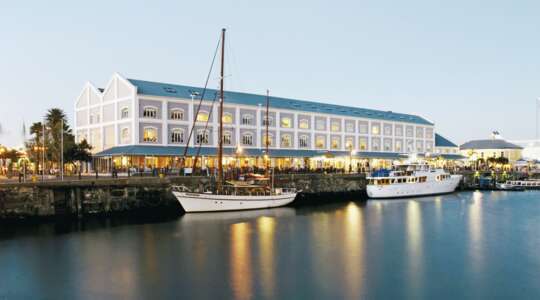
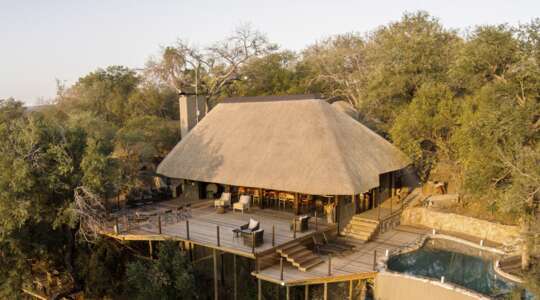
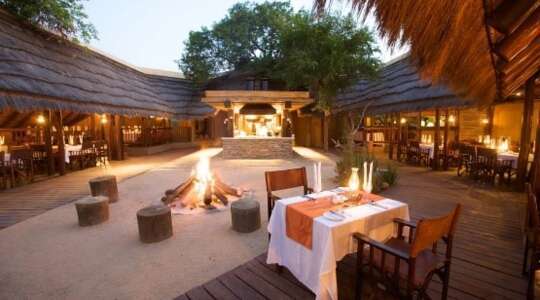
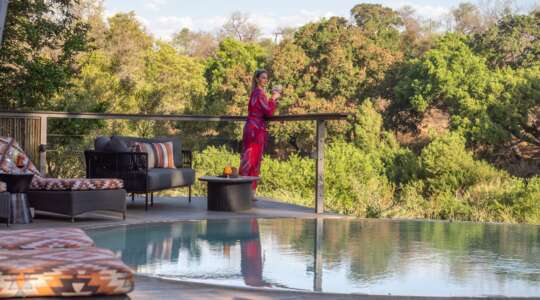
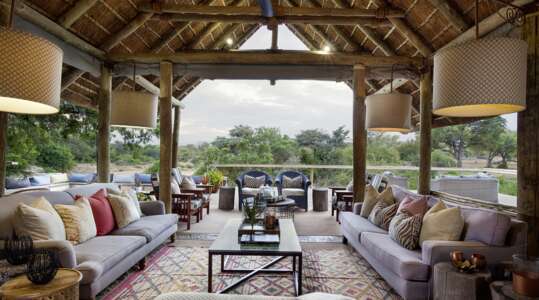
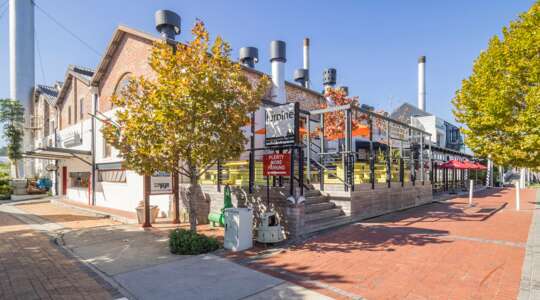
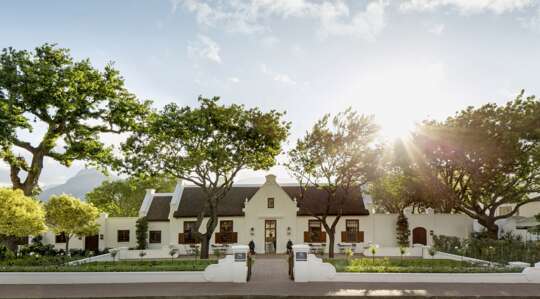
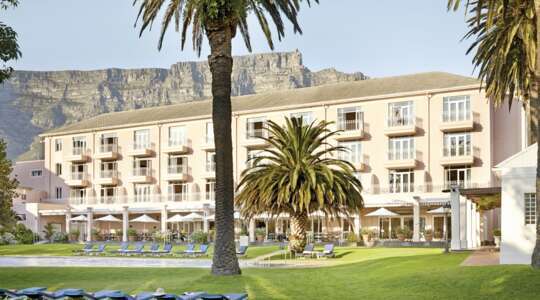
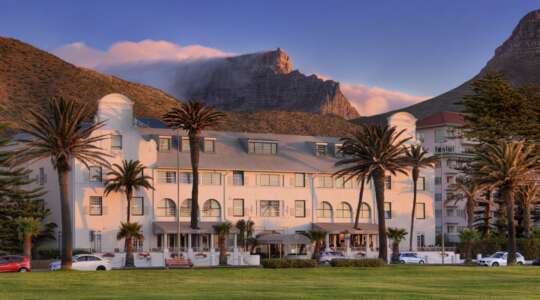
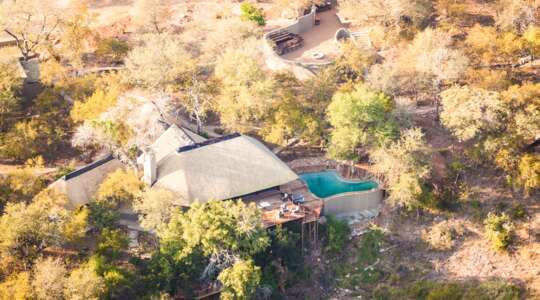
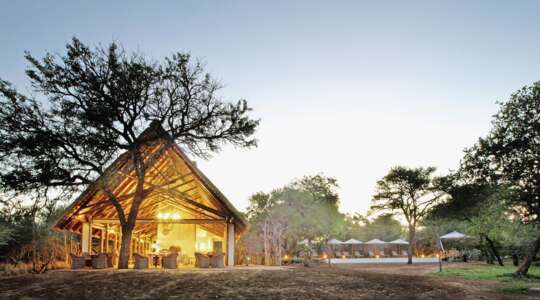
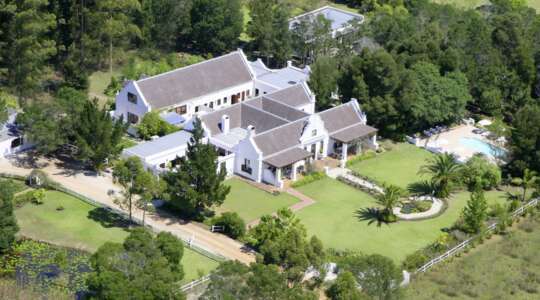
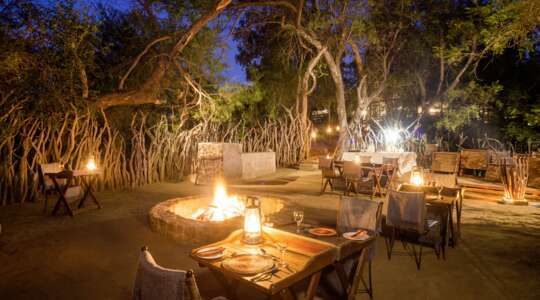
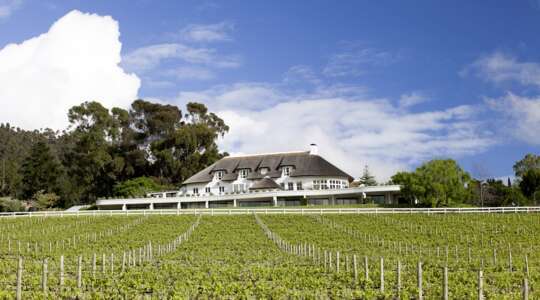
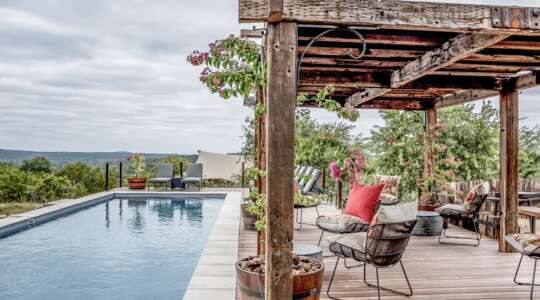
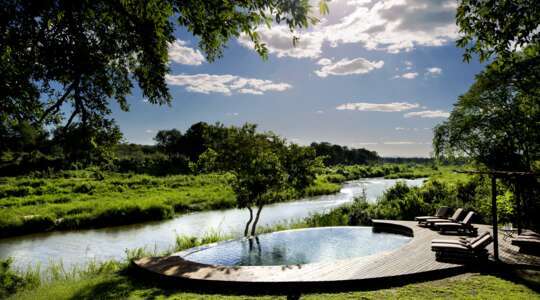
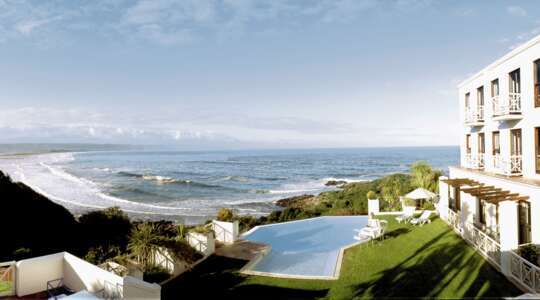
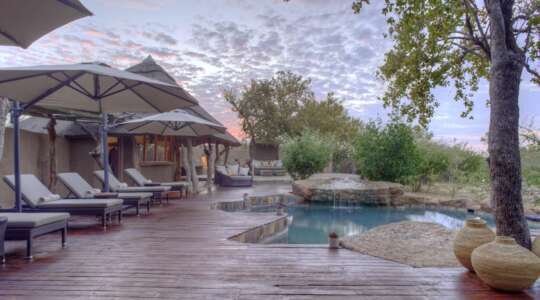
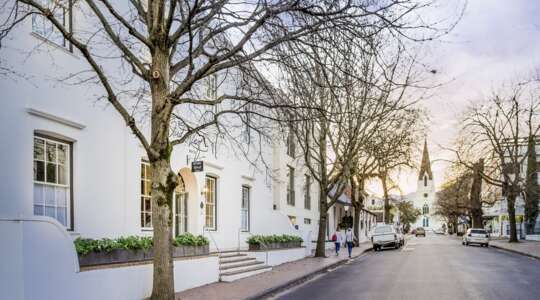
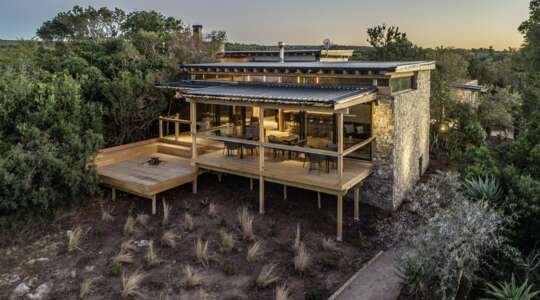
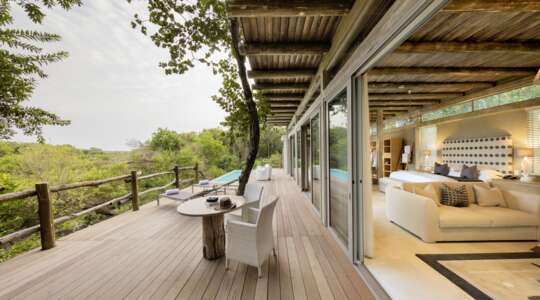
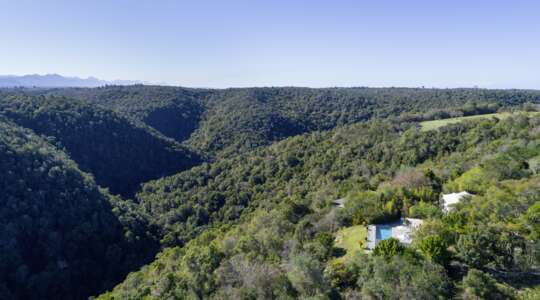
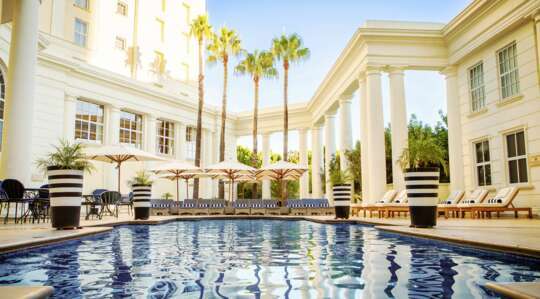
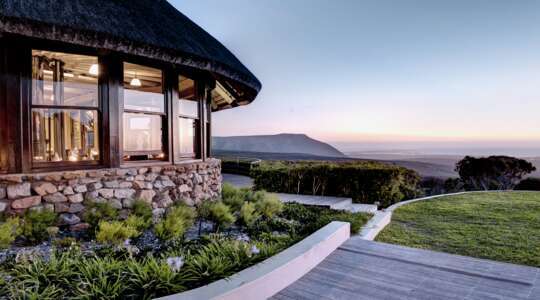
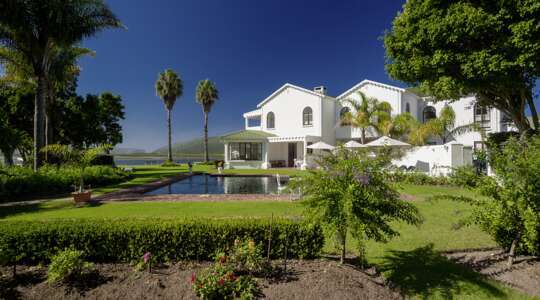
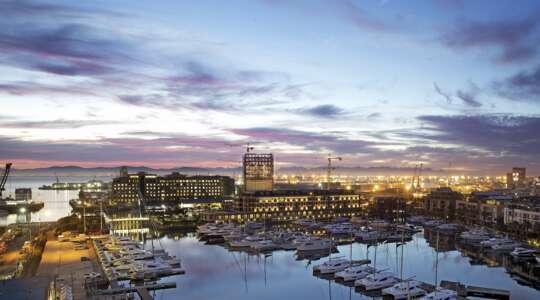
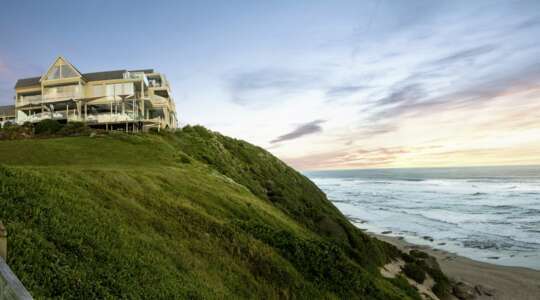
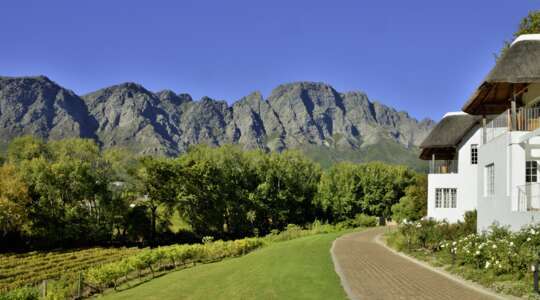
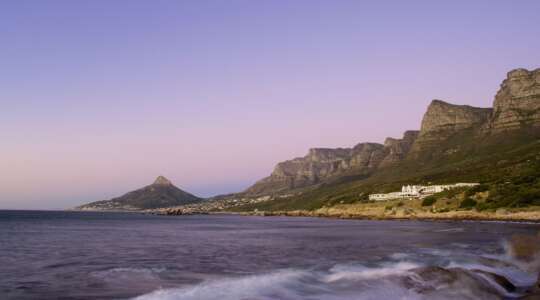
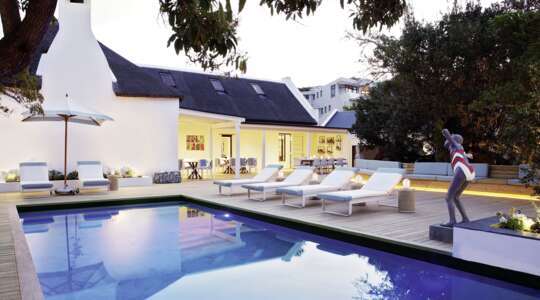
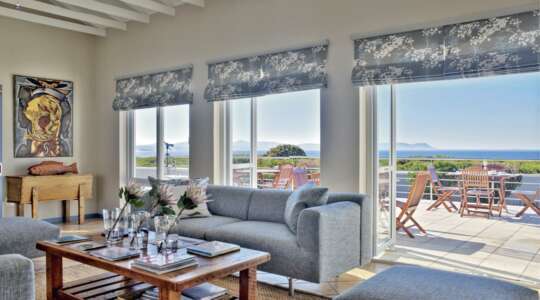
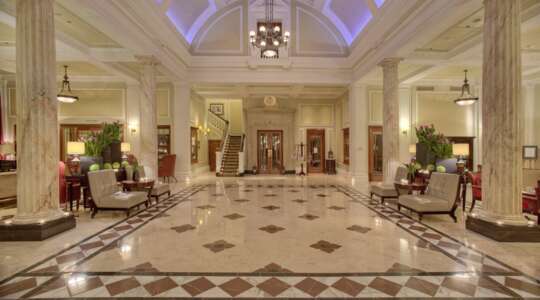
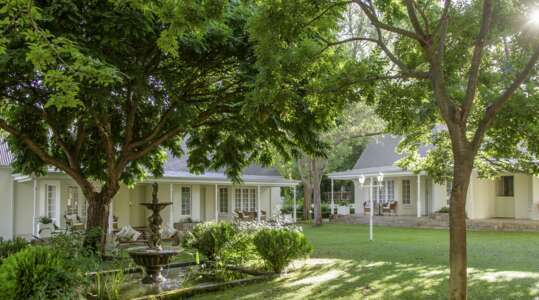
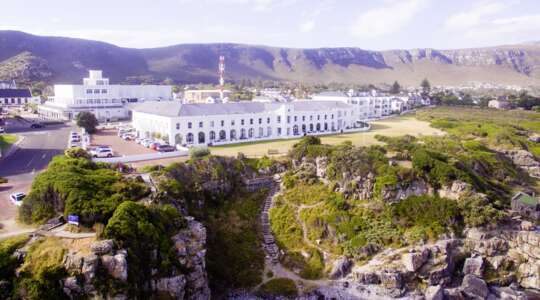
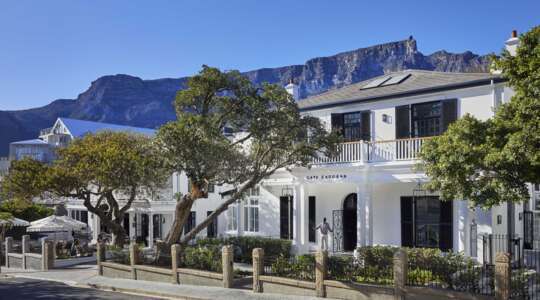
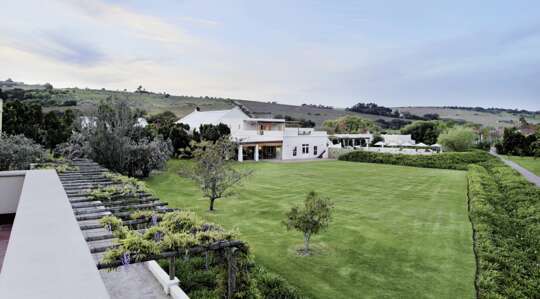

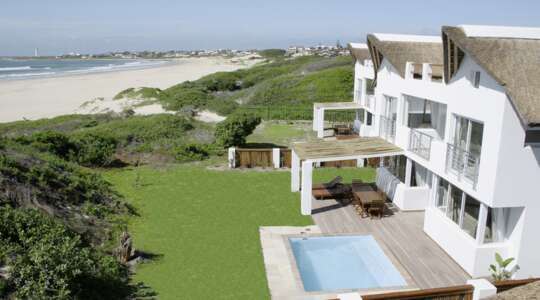
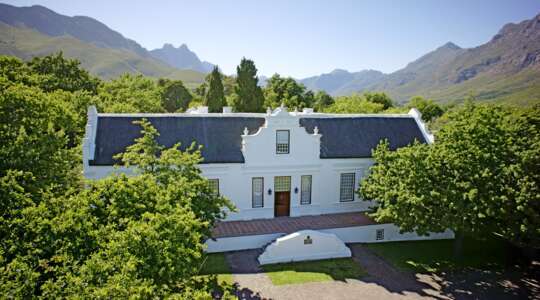
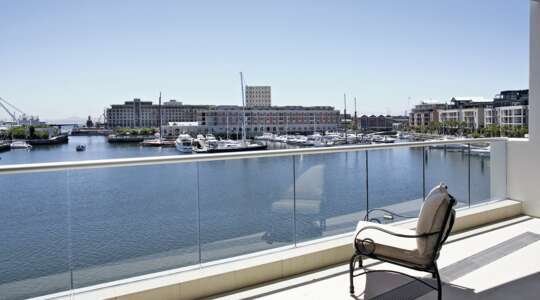
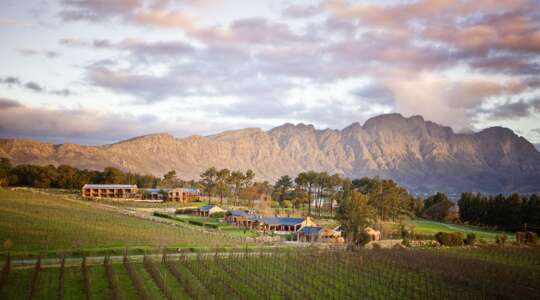
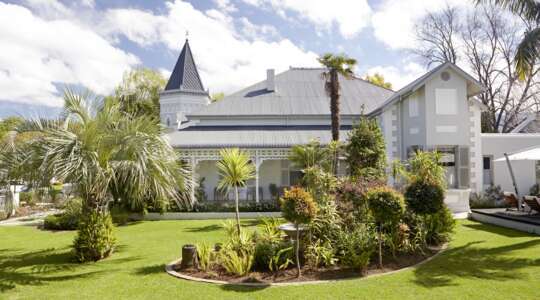
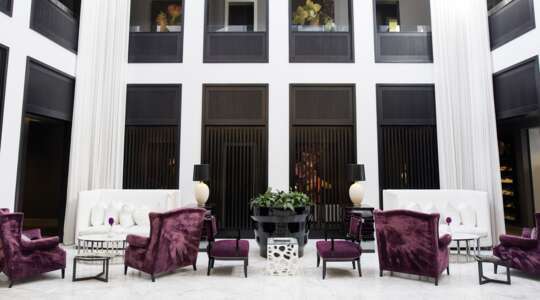
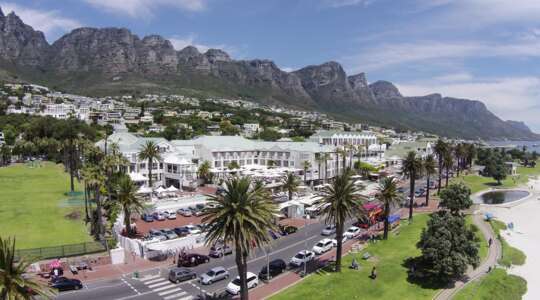
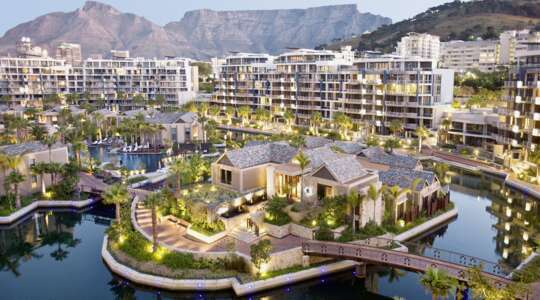
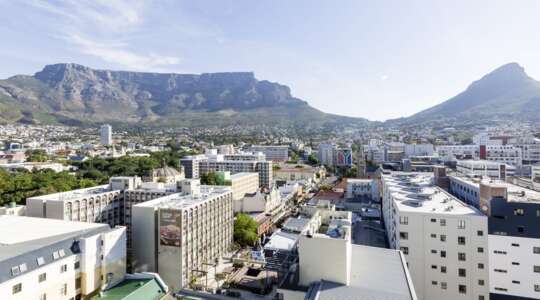
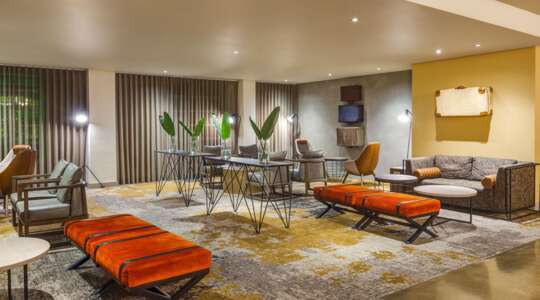
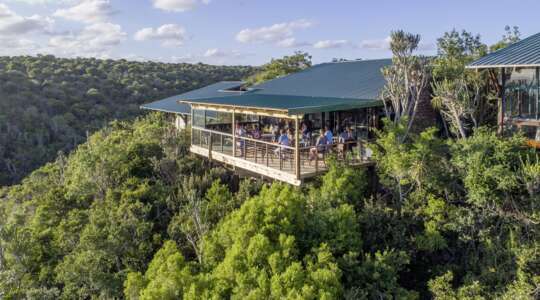
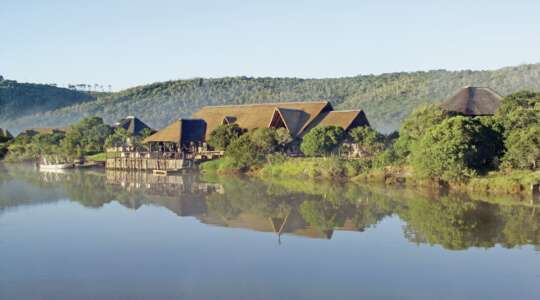
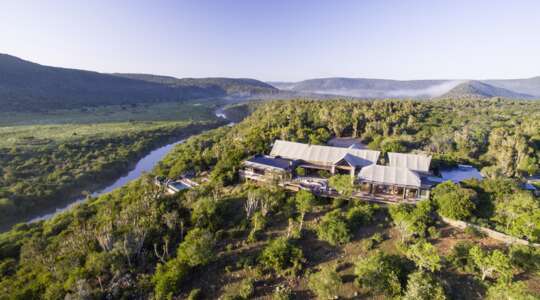
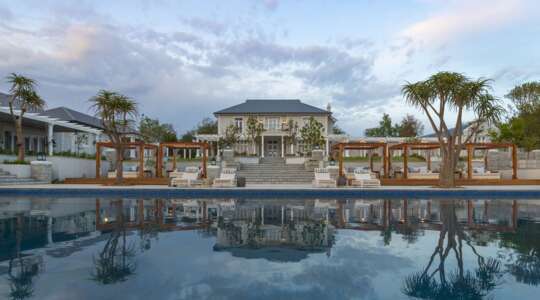
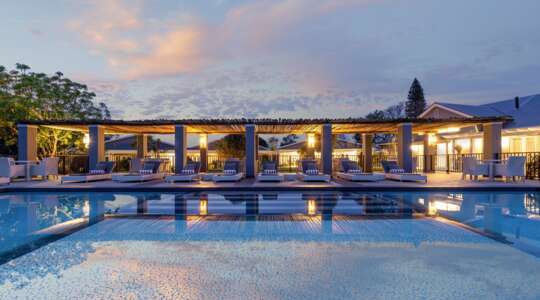
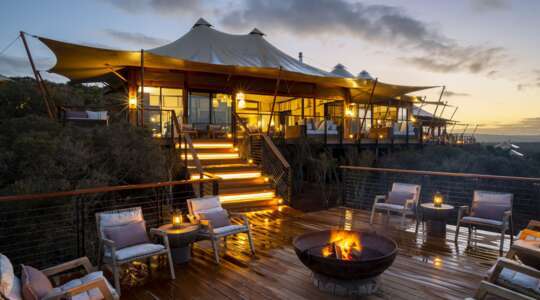
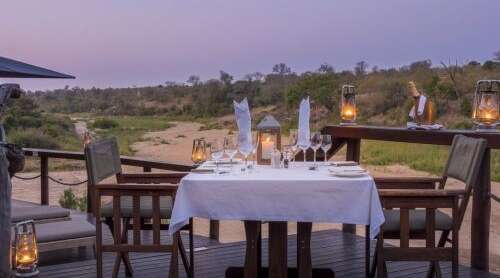
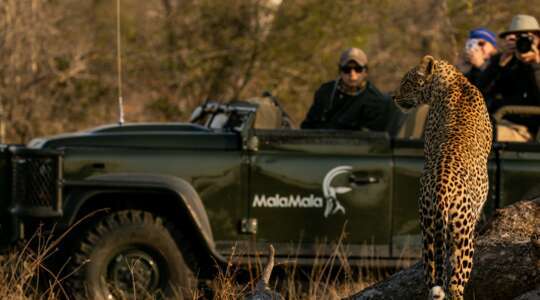
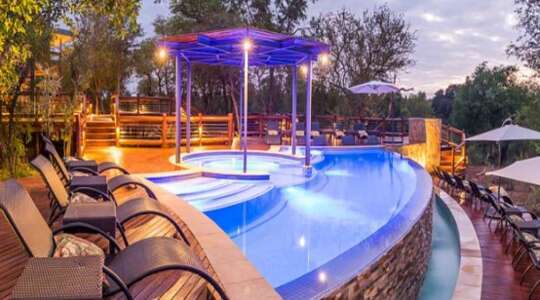
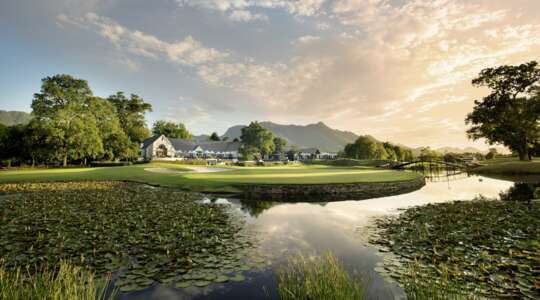
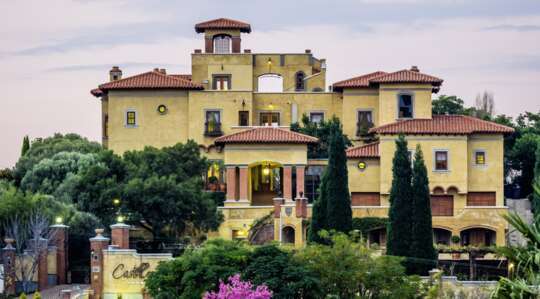
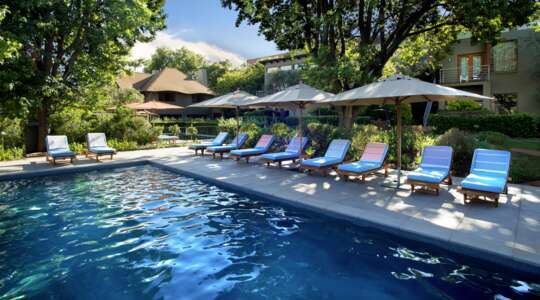
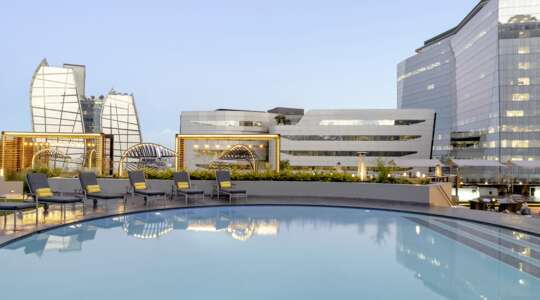
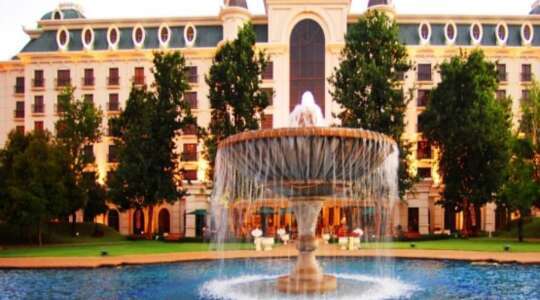
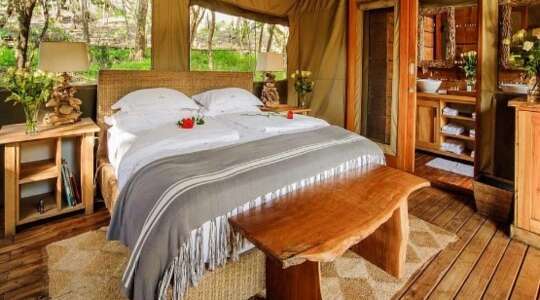
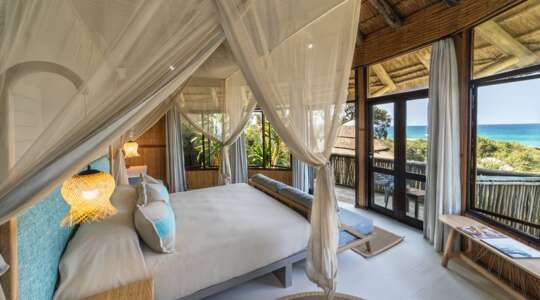
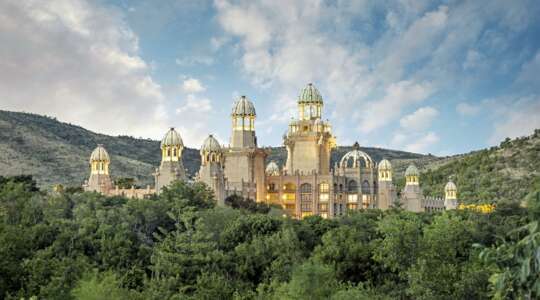
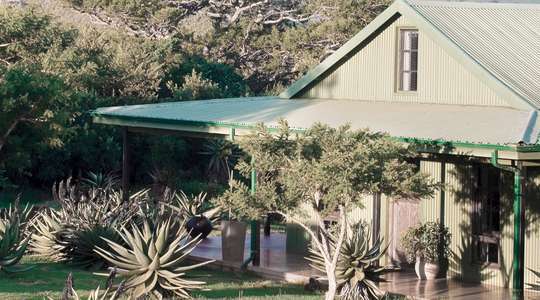
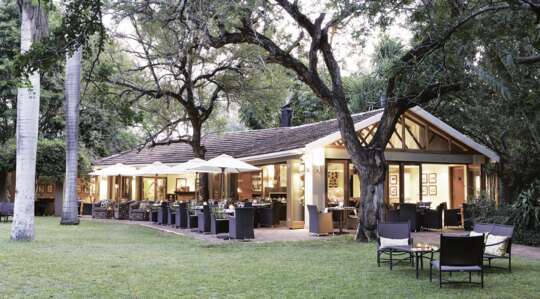
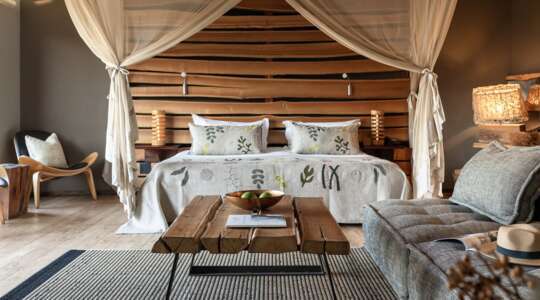
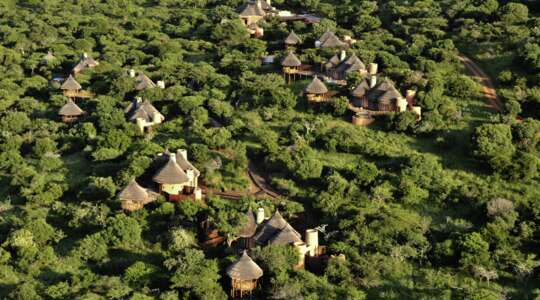
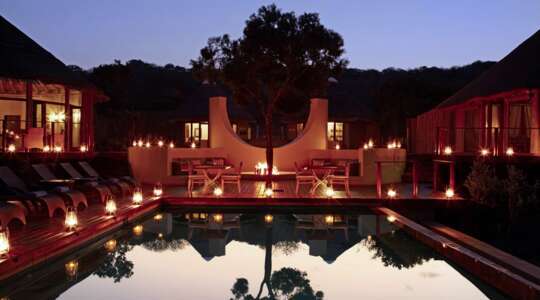
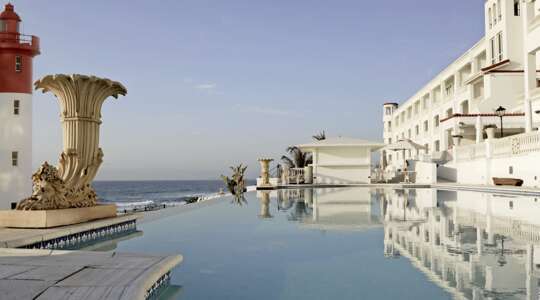
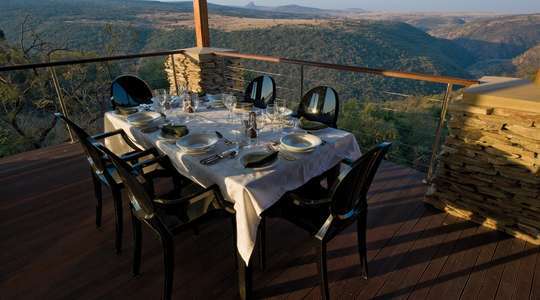
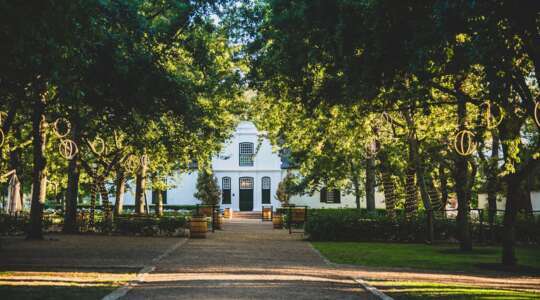

_w=24_h=25.webp?v=11cbf9448902371bca1085014eba9ac82a696589)
_w=24_h=25.webp?v=11cbf9448902371bca1085014eba9ac82a696589)
_w=24_h=25.webp?v=11cbf9448902371bca1085014eba9ac82a696589)